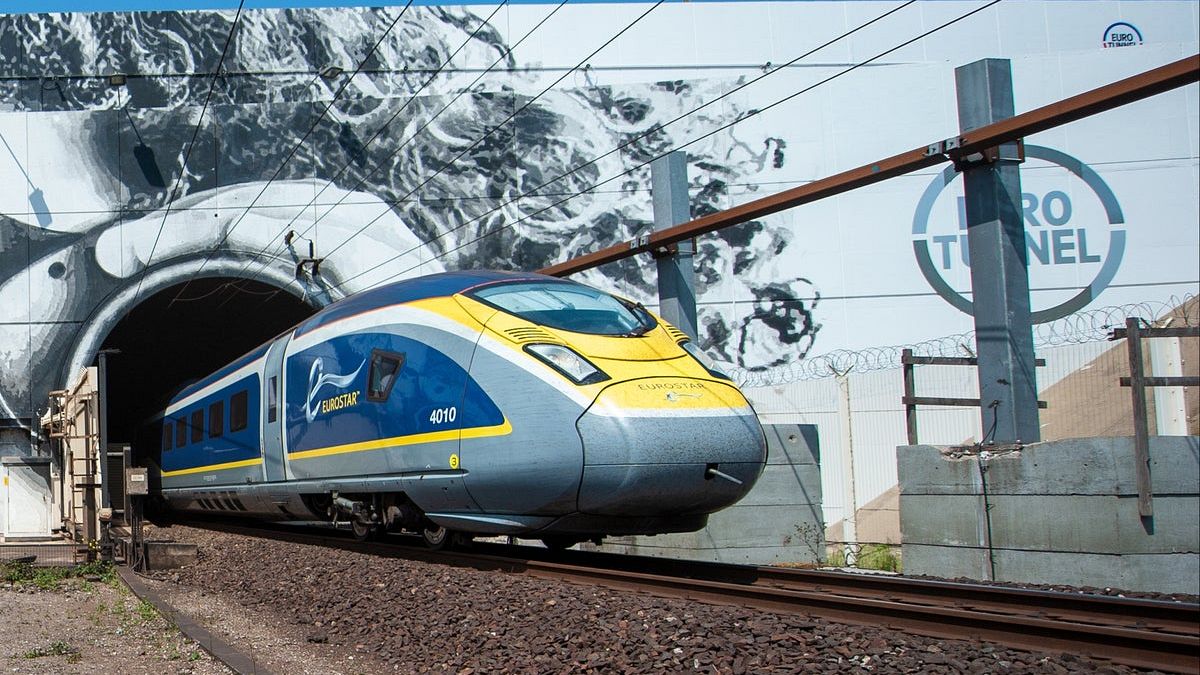For nearly three decades, Eurostar has been the only rail operator running through the Channel Tunnel, connecting the UK with mainland Europe. But recent shifts in regulation and burgeoning demand for lower-carbon travel options have boosted interest from competitors.
Companies from the UK and Europe are eagerly eyeing a share of the market, but starting services hasn’t been easy. Expensive trains, limited space for them to be serviced, maintained, and stored, and Eurostar’s dominance have conspired to maintain the monopoly. But things are starting to change.
A new report commissioned by the Office of Road and Rail has ruled that Eurostar must provide access to new operators at Temple Mills depot. It also demanded that HS1, the high-speed rail link between London and the Tunnel, reduce its fees from almost €30 per mile. Currently these are the highest fees in Europe.
As each barrier comes down, excitement for new cross-Channel options rises. Several companies are confident their bids will be a success and claim that increased competition will ultimately mean lower prices for passengers.
Which rail operators want to run Channel Tunnel services?
While the Channel Tunnel has been open to competitors since 2010, no other operator has attempted to challenge Eurostars’ dominance. But recent regulatory shifts and legal challenges have seen interest accelerate, with several companies vying to provide new services.
The Virgin Group is one such company and has stated a desire to launch cross-channel train services by 2029. Discussions are already underway for a fleet of trains to operate the service.
Competing for access to the ‘Chunnel’ is a Spanish-led consortium known as Evolyn. The company wants to launch high-speed services between London and Paris and has indicated it has reached an agreement with Alstom to purchase 12 high-speed trains for the service.
Also throwing its hat in the ring is a start-up called Gemini Trains. led by Lord Tony Berkeley, a British aristocrat and former Eurotunnel engineer. Gemini has applied for an operator’s license to service Paris, Strasbourg, Cologne, and Geneva with a fleet of 10 trains by 2029.
Other operators have previously expressed an interest in open access to the Channel Tunnel. Deutsche Bahn showcased a high-speed train at London’s St Pancras in 2010, signaling its intent to connect London with destinations in Germany, such as Frankfurt and Cologne. However, it has not yet officially joined the bidding war for services.
New report brings Eurostar competition closer
Since the opening of the Channel Tunnel in 1994, Eurostar has held a monopoly on rail services between the UK and Europe. Although there’s been nothing stopping new operators from venturing into the market, barriers to entry have been high.
For a start, trains must be long enough to align with tunnel evacuation points, and there are various technical requirements that not many manufacturers can meet. The cost of acquiring new trains that comply with these requirements, estimated at €35 – €60 million per train, has deterred competitors from getting involved.
In order to operate a cross-channel service, operators also need a depot. London’s St Pancras International and the Temple Mills maintenance depot are under Eurostar’s control, and it has frequently argued that Temple Mills is already at capacity.
However, a new report, commissioned by the UK’s Office of Road and Rail (ORR) and conducted by independent consultants IPEX, suggests this is not necessarily true.
In its report, IPEX stated that there is ‘some’ capacity at Temple Mills for more trains to be serviced, maintained, and stored. It says that some of the capacity can be accessed immediately, without any changes, but that the rest will be delivered through investment.
Virgin Group applauded the findings of the report, saying that claims suggesting Temple Mills was at capacity have been blocking Virgin’s bid for cross-Channel services. “Finally a green signal for competition,” a spokesperson for Virgin says. “There are no more major hurdles to overcome, and Virgin is ready to take up the challenge.”
However, Eurostar argues that the report effectively validates its claim that the depot is at capacity. A spokesperson said, “It confirms what Eurostar has said all along: the Temple Mills depot is effectively almost full today for major maintenance work and would require investment to meet the growing demands of international rail.”
Eurostar notes that the options in the report could create some capacity, but this would not be enough to accommodate any single additional operator.
Will new options be good for cross-Channel passengers?
Increased competition on the Eurotunnel services is widely considered to bring benefits to passengers. In any market, more competition tends to lead to lower prices, better services and more choice, and the cross-Channel rail market is no different.
Yann Leriche, CEO of Getlink (the company that operates the Channel Tunnel), told the BBC that through competition, “the market will be more dynamic, all operators will improve their offer.”
“I love Eurostar’s service, but competition keeps everyone on their toes,” says Mark Smith, also known as the Man in Seat 61. “The extra capacity this will bring has been shown to lower prices. It’s definitely good news for travellers.”
While prices for Eurotunnel service may fall as competition hots up, having more choice is crucial to the attractiveness of rail options. Being able to travel directly to London from cities in Germany, Switzerland and beyond is a good first step in making rail a workable alternative to air travel and encouraging passengers to switcht to this lower carbon form of transportation.
Smith further notes that there could be more connections in the UK too, as Gemini Trains has touted services from Ebbsfleet in Kent. “Eurostar doesn’t want to do that,” he says. “Let’s also hope competitors will consider easier bike access and allowing dogs.”

